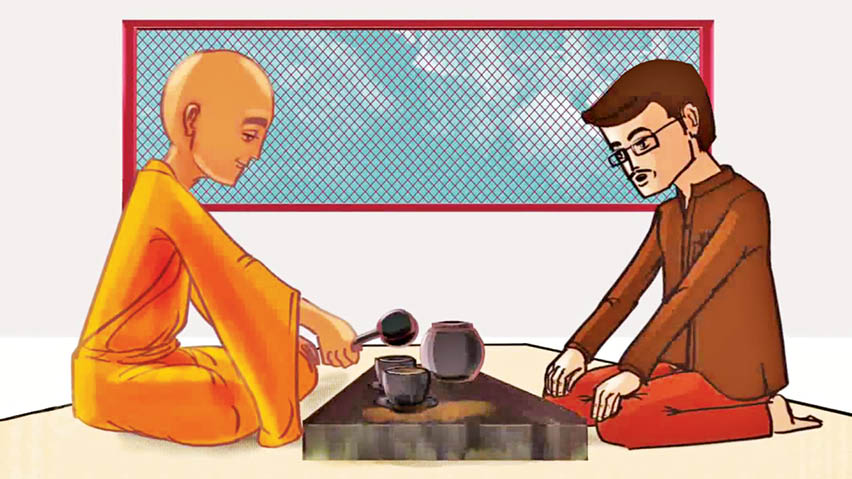In this sixteenth part of ‘The Zen Series’, a Zen master’s answer to a monk’s innocent question, reveals great wisdom to be applied in life!
A learned man once went to visit a Zen teacher to inquire about Zen. As the Zen teacher talked, the learned man frequently interrupted to express his own opinion about this or that. Finally, the Zen teacher stopped talking and began to serve tea to the learned man. He poured the cup full, then kept pouring until the cup overflowed.
“Stop!” said the learned man. “The cup is full, no more can be poured in!”
“Like this cup, you are full of your own opinions,” replied the Zen teacher. “If you do not first empty your cup, how can you taste my cup of tea?”
[Courtesy: Zen Stories for a Clear, Calm Mind]
‘So full of himself!’ – ‘Know it all!’ – ‘Think they know everything!’… These are common statements reserved for people who seem to have an opinion on everything. Some people believe they possess experience, knowledge and understanding over and above their brethren and that their thoughts and ideas are the ultimate truisms. As if that was not enough, they feel obliged to prove it!
But how far can one go with that? Knowledge and wisdom are infinite and there is always room for growth and learning. It all depends on whether we wish to learn. Are we ready to open our minds and hearts to what others say? Take a reality check on where you stand…
Self-Check: How many of the following do you do/believe when speaking with someone?
- Listen till the end and reserve your comments or opinions for after they are done talking?
- Do you really listen mindfully?
- Is there a feeling in you that something is there to be learnt from every interaction?
- Do you let the other person know that there is something that s/he can contribute to your learning?
- Most importantly, are you patient enough to take a moment and think of what could be gleaned from the interaction?
If you’re able to do this, then you have an empty cup waiting to be filled with learning, knowledge and wisdom. But if there is this overriding urge to say your piece and not let the other person speak – think again!
Sponges absorb the most water. Be like a sponge. It will make you take in experiences to the fullest. The smallest ant can teach an elephant a lesson! So, it is in the real world. When we are aware in the true sense of things and situations around us, then we’re in a position to learn even from someone who may seem inconsequential.
It’s great to be a teacher, but when you are a student you will learn much more. What if you know more? There is always room to get better. Accept your ignorance and be ready to learn and see how far you will go!
The moment you feel that you know it all:
- Take a pause and ask yourself – ‘Really?’
- Preserve the humility within to accept new learning.
- Listen to others around you – they can be great teachers.
- Be open to change and new experiences.
- Remind yourself that you are not indispensable.
- Look No further: The Five Elements Lie Within You - 16 March2024
- Thodi Si Lift Karade! How To Up Your Spiritual Quotient!! - 18 March2023
- Are You Truly Compassionate? - 13 August2022
